- Home
- Tim Lebbon
Ten-Word Tragedies Page 2
Ten-Word Tragedies Read online
Page 2
There was one part of the text, however, that Monica doubted would have been left unchanged. ‘Pop. 15,581’.
The size of a town is both a matter of civic pride and something that’s pretty obvious to the casual observer. You couldn’t keep using an old figure when the town had observably doubled in size. She got out her iPhone launched the Google app and typed in ‘Laramie Wyoming population’.
This gave her a number of sites telling her what the population was now—a little over 30,000, apparently, a level that seemed to have remained fairly constant over the last twenty or thirty years. That wasn’t what she needed, and so she spent a few minutes experimenting with adding search terms like ‘in the past’ and ‘historically’ before hitting upon the far more useful ‘census’.
Aha. Up popped a Historical Decennial Census Population for Wyoming Counties, Cities and Towns, courtesy of the Wyoming Economic Analysis Division.
After initially being confused by rather larger figures that turned out to be for Laramie County, she found the numbers for the town itself. This confirmed that the population now was around the 30,000 mark. She scanned along the row until she found…
15,581.
In 1950, the census data for the town indicated that the population was the exact same number as on the postcard.
Monica realized that didn’t mean the postcard had been published in the year 1950. The next census hadn’t taken place until 1960, at which point the number had increased to 17,520. What it did suggest was that the card she held in held in her hand was very likely printed at some point in the 1950s—and certainly not before. It would have been impossible to predict the exact, census-given population ahead of time.
And that gave Monica pause.
As she was trying to puzzle through the implications, a distant car horn made her glance up. The light was starting to turn outside. Her husband was picking Madison up from school today (in fact, would already have done so), but Monica still needed to get this finished, and head home soon.
She put the card to one side and quickly sifted through the remaining stuff in the drawer. Found another postcard, this time showing a forest in Vermont and dated in the 1970s, with a short message signed ‘Mary’. Her grandmother’s name. May’s daughter.
Mildly curious, though not in the way Monica now realized the other was. She put it to one side, too.
Then she got on with tipping the rest of the drawer into the trash, and clearing the final areas of the house. She hesitated briefly in the bathroom over the last piece of hand soap her mother ever would have used, but threw it away. There are limits.
And then, an hour later, a space that now—aside from pieces of furniture that a thrift store was coming to collect in the next few days—lay empty, and dead. And standing in the middle of it, Monica, looking down once more at the postcard of Laramie, Wyoming, in her hand.
She had cried again. Her head hurt and she felt very tired. The boxes were in the car. Not many, and not holding much, but Monica knew her mother would not only understand this, but condone it. Travel light, Margaret’s motto had been: you’ll get further that way.
The postcard from Vermont was in Monica’s purse. Presumably, despite the lack of address, it had been sent or given by her grandmother to her mother, and was therefore worth keeping.
She was less sure what to do about the one from Laramie.
It couldn’t be from her great-grandmother, she knew that. The dates didn’t work. May had died in the early-1930s. Monica couldn’t remember what exact year (and her mother wasn’t around to ask, of course), but remembered it being remarked that she’d been lucky not to have to deal with the war years.
That meant that it was quite impossible for her to have written on a postcard that must have been printed after 1950.
So why did her mother have it? Had she perhaps found it in some flea market, been struck by the fact it had her great-grandmother’s name on it, and handed over the quarter or fifty cents required to own it out of a sentimental whim? Maybe.
Or had she been struck, as Monica had, by the slight oddness of the message, the way it seemed less of a letter and more like something designed to say, or reassure, ‘Look—I exist. I am in a place. I am here.’
It was possible, of course, that the original owner of the card had not been Monica’s mother, but her mother, Mary—and that she’d picked it up because it had her mother’s name on it, then later passed it on to her daughter.
Impossible to tell. And in that fact, Monica realized, was everything that could be said about someone after they had gone. They had done things. Though the reasons might sometimes be lost with them, the effects remain, and in those effects—however small and trivial—they gain something like immortality. This card was in Monica’s hand because her mother had owned it. She was still there, still alive, in that fact.
And so Monica decided she would keep it, and the one from Vermont too.
Mid-evening, she was sitting alone on the porch with a cup of coffee, when Madison came out. Five minutes earlier, her daughter would have caught Monica in the act of having one of her extremely rare cigarettes. Madison evidently detected the lingering remains of smoke, but though she disapproved strongly of the practice—and had been utterly scandalized the one time she’d seen her grandmother smoking (Margaret looked at her grand-daughter coolly, and said ‘I’m old and I can do what I want, toots,’)—elected not to say anything.
‘I’m nearly done with my homework.’
‘Good,’ Monica said. Daughter and husband had kept discreetely out of the way since she got home, giving her the space to disperse her mother’s things into various drawers and cupboards. They’d all eaten a quiet dinner together, and John was now in his study, doing email. ‘Do you need my help?’
‘Kinda. Well no, I’ll be fine. I just wanted to see if you were okay out here by yourself.’
‘I am. Thank you, honey.’
Madison nodded. ‘You know you only started smoking because Grandma used to, right?’
Monica rolled her eyes. ‘Maddy…’
‘I’m not going to give you a hard time about it. Not tonight. I’m just saying.’
‘And you may be right. But then I gave up, pretty much, just like she did. What your parents do lingers on. That’s all. That’s how life works.’
Madison thought about this. ‘Well that’s good, in a way,’ she said. ‘Not the smoking part. But otherwise.’
‘Why’s that?’
‘Because it means you don’t have to still be alive, to keep being someone’s mom.’
Monica blinked.
‘That’s pretty smart, Maddy.’
Her daughter shrugged. ‘I am very wise. Oh, and you dropped this earlier. Someone must have found it outside and pushed it under the front door. It was there on the mat.’
Madison dropped something on the side table and went back inside to re-engage with 7th grade math. Monica glanced at what she’d left, assumed at first it must be the postcard from Laramie. Then she realized the picture was different.
She picked it up.
The photograph showed some small, snowy town, with mountains behind. The postcard looked modern. Monica had never seen it before. Ever. She was confident of that.
She flipped it over. A caption at the top left indicated that the view was of someplace called Harrup, Montana. There was no address on the right, no stamp and no date, but there was a message on the left side, in handwriting she recognized.
It said:
There are so many silver birch, and a beautiful lake.
I shall be happy here. Be happy too.
And then a name:
Margaret
Monica sat with the card a few minutes, smoking another cigarette, and then went indoors to help her daughter with math, and to keep spinning the endless web.
LONDON SAFE
STUART NEVILLE
JASON MCCOUBRY’S MOTHER STARED AT THE POSTCARD in his hand, her mouth a thin straight line. Her window didn’t
allow much light into the room, and sometimes he thought that a blessing. The drab painted walls, the bed with its rails to prevent her from falling in the night, the vase of plastic flowers. They had to sell her house to pay for this place, and she had wept when he first helped her through the door. The carers did their jobs well, but still, leaving his mother here had been about the hardest thing he’d ever done. Until now.
‘Why didn’t you tell me?’ he asked.
‘There was nothing to tell,’ she said, her voice as dry as the card in his hand.
‘Nothing to tell? You said he’d left us.’
‘And that was the truth.’
‘Not the whole truth, though, was it?’
He was getting angry. He’d promised himself he wouldn’t. She was a frail woman, mostly intact upstairs, but her body had failed her long ago. It wasn’t fair to harangue her. But it wasn’t fair of her to lie to him. He swallowed the anger, pushed it down as far as he could.
‘He left us,’ Margaret McCoubry said. ‘That’s all you needed to know.’
‘But we never knew why,’ Jason said.
She lay back in the bed and looked up at the ceiling tiles. ‘What difference would that have made?’
‘At least I could have understood. Maybe I wouldn’t have wound up hating him the way I did. Thirty years, carrying that around with me. Thinking he didn’t want us.’
‘He didn’t,’ she said. ‘If he cared about you or me, he would never have done what he did.’
What he did.
Informant was one word for it. Snitch was another. Or around here, in the towns and villages, in the cities like Belfast or Derry, the word was tout.
Touts out. Snitches get stitches.
He remembered the graffiti on the gable walls of the estate. Keep your mouth shut. Say nothing.
When Jason was eleven years old, one week after he started at the local grammar—the first in his family ever to pass the exams and get into a good school—his father wasn’t at the breakfast table. Jason and his little sister Claire had sat in silence as their mother filled the bowls with cereal and milk, radiating fury and pain. She didn’t have to say anything. He and Claire both knew something was terribly wrong.
Margaret told them that evening. Their father, Dan McCoubry, had abandoned them. Just gone. No explanation, no warning. Jason knew his father hadn’t been himself this last while. He had become sullen and withdrawn when he’d always been jovial and outgoing. Everyone knew Long Dan, so-called because of his six-foot-four height married to a painfully slender frame. Long Dan the Handy Man. Those words were hand-painted on the side of the little Renault van he drove about the town, doing odd jobs, clearing gutters, papering walls, painting doors. He worked hard to feed his family, some years even made enough to pay for a stay in a guesthouse in Portrush in the dying days of August.
Long Dan McCoubry was a good man. Jason had been certain of that until his mother told him otherwise. That had been a Monday. On the following Friday, they moved house, moved town, moved county. Not even a chance to say goodbye to their friends. Barely even two weeks at the good school before Jason had to leave, starting over again at a place where he knew no one.
Six months ago, Jason had to clear out his mother’s house before it went on the market, and boxes full of letters and documents had been stacked in his garage ever since. Two days ago, he’d begun sorting through them, filling bags for recycling, shredding the more private correspondence. He had found the postcard, dry and yellowed, in the bottom of a biscuit tin. It was bound up with a rubber band along with a selection of old photographs and envelopes. Blue ink in a meticulous script. He read it once, twice, three times before he understood.
‘Maggie—
I’m sorry. I had to do it. They would of put me in jail if I didn’t and told them I touted anyway so I have to go. You know its for the best. Tell the wee one’s I love them and I will always miss them. Try to make them understand its for there own good. I don’t want them to see me shot in front of them. Don’t worry about me in London. I’ll be safe.
Dan.’
Jason held it now in his hands, read it again.
‘What did he do?’ he asked.
‘He turned on his own,’ Margaret said, ‘that’s what he done.’
He waited until she glanced at him. ‘Tell me. I deserve to know. So does Claire.’
‘What have you told her?’
She seemed concerned now, her face darkening. Her daughter had always been the delicate one, the one who needed protecting.
‘Nothing,’ Jason said. ‘Yet.’
Margaret let the air out of her chest, deflating, withering beneath the bedclothes.
‘They came for him in the middle of the night,’ she said. ‘Near kicked the door in before he got to it. They never explained anything, just told him to get dressed, follow them in his van. He didn’t come home till the morning, after youse had gone to school. I never asked him what happened, but he told me that afternoon.
‘They’d got a boatload of weapons in from South Africa. Rifles, he told me, pistols, all sorts. Dozens of them, he said. They’d got some stupid so-and-so to store some of them, but they needed to put up a false wall and none of them knew where to start. So they came for you farther.
‘There was a building supplies place they could take stuff from. Timber, plaster, whatever it was they needed. Took your father all night, but he got it done. They gave him fifty pound and two hundred fags for his trouble. Wasn’t bad for one night, I suppose. But he didn’t like it. He’d never got mixed up in that sort of carry on, but he put it out of his head and just got on with things.
‘Then we were at our tea one night, maybe you remember it. The news came on the wireless, and they said they’d gone into a wee grocery shop on the other side of town and shot the owner dead. His daughter came out from the back, so they killed her too. They put out a statement saying the owner was in the IRA, but the police said that was nonsense. Anyway, your father said nothing, just put his knife and fork down and got up from the table, left his food sitting there.’
Jason remembered. It was summer, light outside as they ate, gammon and chips, slices of tinned pineapple rings on the kids’ plates, fried eggs on their parents’. His father’s seat suddenly empty for no reason, his mother silent and far away. He didn’t remember the news. The killings happened so often, almost daily, that they barely registered. Just another dead girl he didn’t know.
‘So he went to the police?’ Jason asked.
‘Aye,’ Margaret said. ‘Not straight away. It took him a while. He was very quiet those few days, hardly spoke, didn’t eat. Then he went out one evening, and when he came back he told me what he’d done. That he’d gone to the police station and told them everything, where the guns was hid, who had brought him there, all of it. Next evening, on the news, they said about the raid, showed the guns all lined up on the television. Said they’d arrested five men.
‘We got the first bullet in the post a couple of days later. I went down to the shop at the end of the road for milk and they refused to serve me. Every job your father had lined up just disappeared. You and your sister never knew about any of that. I made excuses to keep you inside so you wouldn’t realise the other wee’uns weren’t allowed to play with you anymore. He told me that weekend that he had to go, that the police or MI5 or whoever had got him a place in London, and we couldn’t go with him. I begged him not to leave us, for all the good that did me. And away he went.’
Jason sat quiet for a time, staring at the picture on the postcard. The Strand at Portstewart, sand and sea stretching away into nothing. He remembered paddling there, the water splashing up around his knees, as his father held his hand. Hard skin and bones, the fingers yellowed by nicotine.
‘Why didn’t you tell us?’ he asked.
‘Tell you what? That your father was a tout?’
‘He did the right thing.’
She shook her head, her mouth downturned as if tasting something burned
and bitter. ‘There’s nothing right about turning on your own sort. No matter what they done. You don’t turn on your own. And you don’t run off on your family.’
‘Did you ever hear from him?’
‘Just the once,’ she said. ‘That first Christmas. A card came with a hundred pound in it, saying get something for the wee’uns. I threw it on the fire.’
Jason felt the familiar ball of hate in his chest, the same one he’d carried for thirty years. It weighed as much now as it had before he’d found the postcard, regardless of the truth he’d learned. But it weighed a fraction of the hate his mother carried; he could see it on her, feel the heat of it.
‘I’m going to find him,’ Jason said.
Margaret said nothing.
‘I’m going to find him and bring him home.’
‘Don’t bring him anywhere near me,’ she said.
‘Don’t worry,’ Jason said, standing. ‘I won’t.’
They exchanged no goodbyes as he left her there.
The man who had once been Long Dan the Handy Man walked through the morning crowds on his way to the little newsagent’s on Lupus Street. His name was still Dan McCoubry, they’d never given him the option of changing it, but no one here had ever known him as Long Dan. He remained slender, but his shoulders had slumped, his back hunched, so that nobody could see the tall man he used to be. And that was just as well, probably.
It was Imran behind the counter today. Sometimes it was his older brother, occasionally his father, but Dan liked Imran the best of them. The father was a decent sort, but the older brother was surly and watchful, as if every customer was a potential thief. There was a Tesco Express up the way a little, much closer to Dan’s flat, but he didn’t like the self-checkout.
‘Good morning, my friend, how are you today?’
Imran smiled as he spoke the same eight words with which he always greeted Dan.
‘Not too bad, not too bad.’
Always the same reply. And the same two packets of cigarettes waiting on the counter, forty Mayfair, the same Daily Mirror along with them. Dan handed over the twenty-pound note, waited for his change, and said his thank yous and goodbyes.

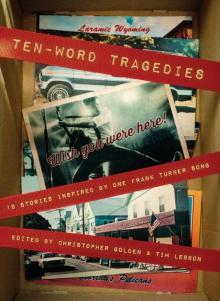 Ten-Word Tragedies
Ten-Word Tragedies Predator: Incursion
Predator: Incursion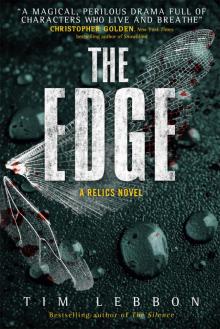 Relics--The Edge
Relics--The Edge Firefly
Firefly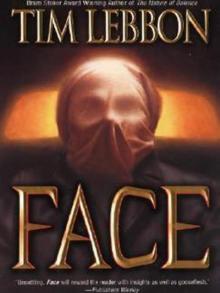 Face
Face Generations
Generations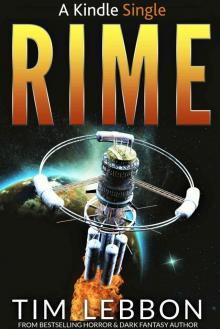 RIME (Kindle Single)
RIME (Kindle Single) Fallen
Fallen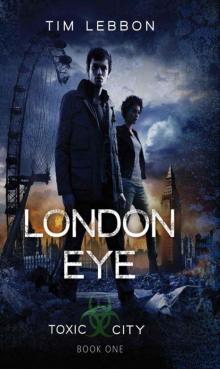 London Eye tc-1
London Eye tc-1 Kong: Skull Island
Kong: Skull Island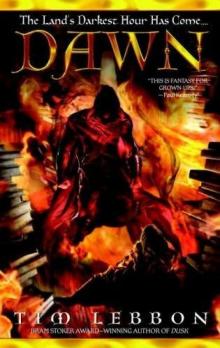 Dawn n-2
Dawn n-2 Into the Void: Star Wars (Dawn of the Jedi)
Into the Void: Star Wars (Dawn of the Jedi) The Everlasting
The Everlasting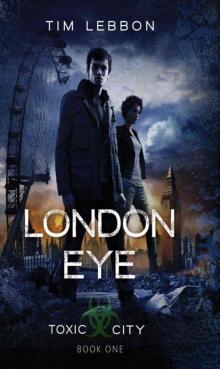 London Eye: 1 (Toxic City)
London Eye: 1 (Toxic City) Dusk: a dark fantasy novel (A Noreela novel)
Dusk: a dark fantasy novel (A Noreela novel)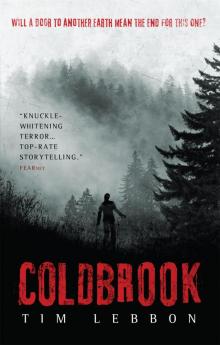 Coldbrook
Coldbrook Alien
Alien Dusk
Dusk The Cabin in the Woods
The Cabin in the Woods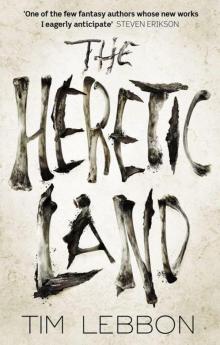 The Heretic Land
The Heretic Land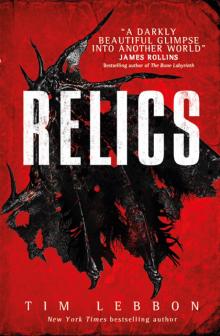 Relics
Relics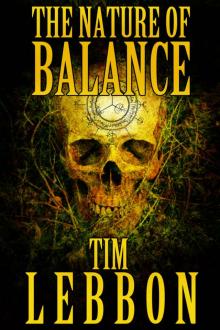 The Nature of Balance
The Nature of Balance Echo City
Echo City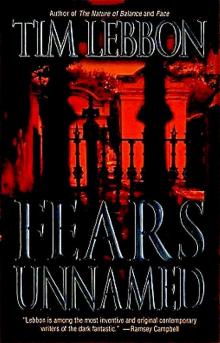 Tim Lebbon - Fears Unnamed
Tim Lebbon - Fears Unnamed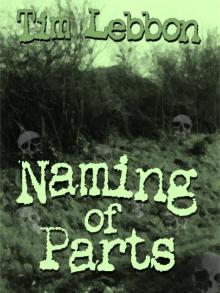 Naming of Parts
Naming of Parts Alien--Invasion
Alien--Invasion Vale of Blood Roses
Vale of Blood Roses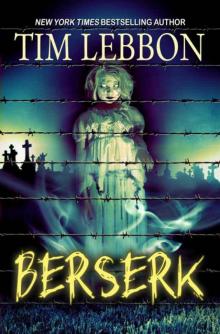 Berserk
Berserk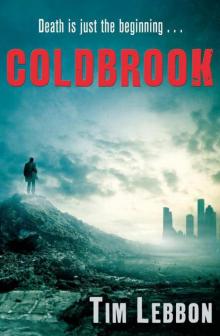 Coldbrook (Hammer)
Coldbrook (Hammer) Contagion tc-3
Contagion tc-3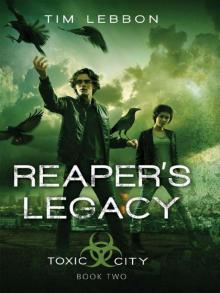 Reaper's Legacy: Book Two (Toxic City)
Reaper's Legacy: Book Two (Toxic City)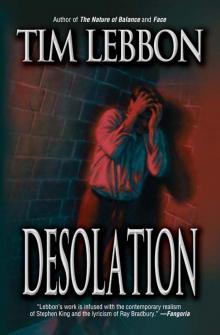 Desolation
Desolation Unnatural Selection
Unnatural Selection Predator - Incursion
Predator - Incursion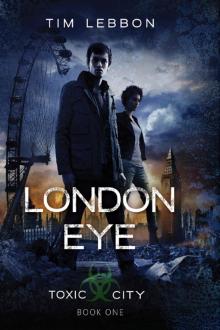 London Eye
London Eye Contagion (Toxic City Book Three)
Contagion (Toxic City Book Three) The Silence
The Silence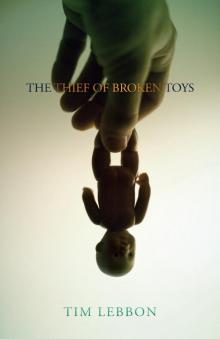 The Thief of Broken Toys
The Thief of Broken Toys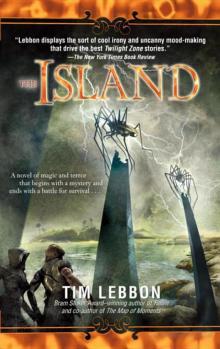 Tales of Noreela 04: The Island
Tales of Noreela 04: The Island Dusk n-1
Dusk n-1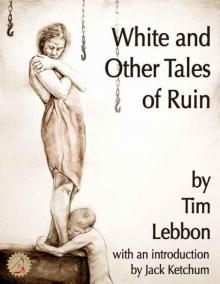 White and Other Tales of Ruin
White and Other Tales of Ruin A Whisper of Southern Lights
A Whisper of Southern Lights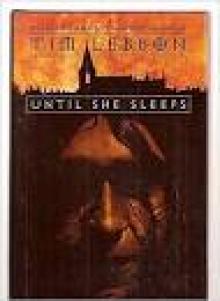 Until She Sleeps
Until She Sleeps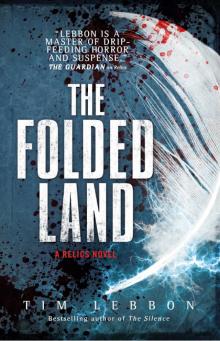 Relics--The Folded Land
Relics--The Folded Land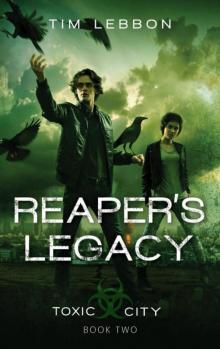 Reaper's Legacy tc-2
Reaper's Legacy tc-2 Alien: Out of the Shadows
Alien: Out of the Shadows Pieces of Hate
Pieces of Hate X-Files: Trust No One
X-Files: Trust No One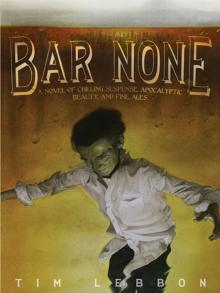 Bar None
Bar None The Fire Wolves
The Fire Wolves